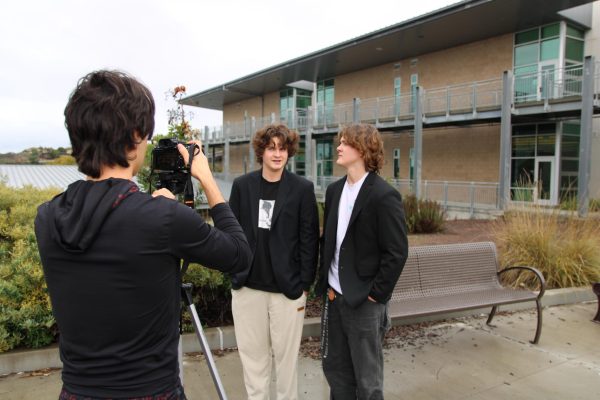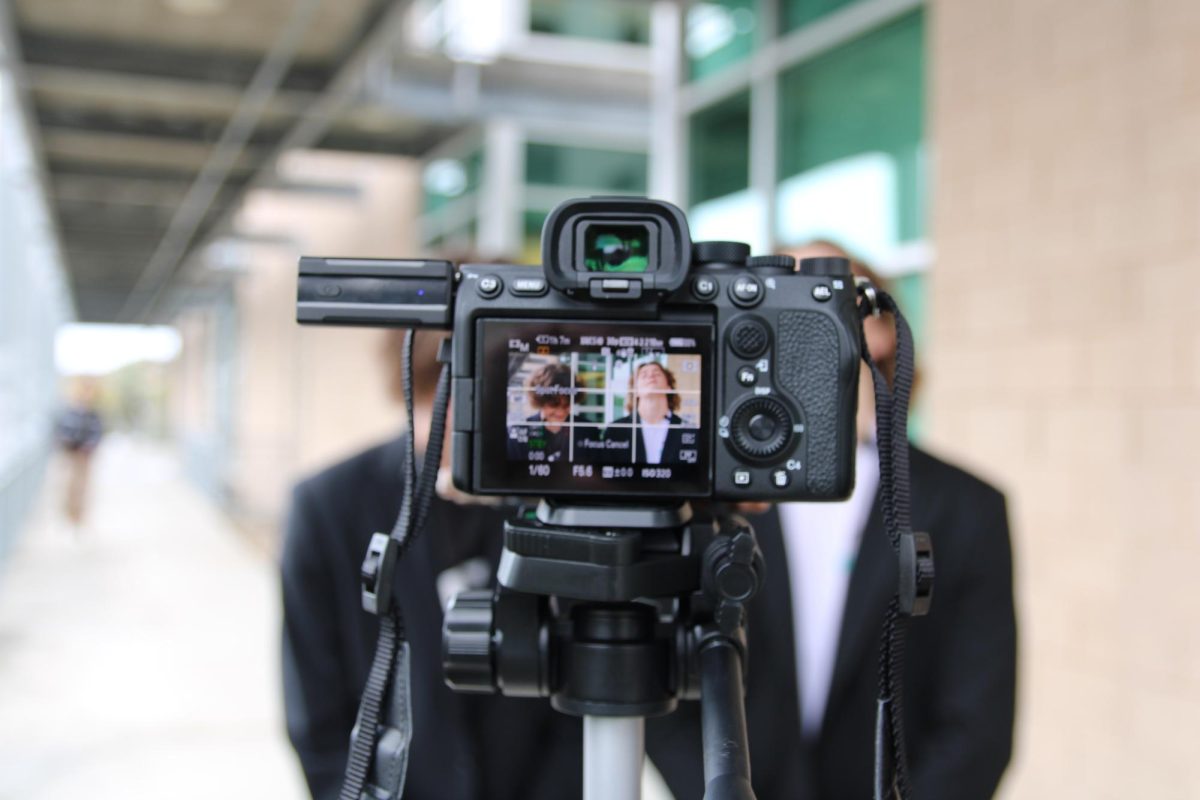In the modern age of social media, journalism and trustworthy news have formed a blurry line between invasive, and non-consensual interviews and real-world journalism. The former is most commonly found on the popular internet site “TikTok.”
As we all know, social media is not the most trustworthy of news sources. But the reality is that we don’t get a choice in the matter of whether or not paid influencers feed us “real or fake news” day in and day out.
Particular accounts on TikTok are said to give journalists a “bad reputation” when they fabricate interviews or more commonly record individuals without consent on covertly personal topics.
Some interviews include deeply personal information requested from people simply trying to continue their day. Others more commonly take place in schools and find their way around campus without compassion.
According to Forbes, one of Tiktok’s top lawyers wrote a confidential memo that was leaked to the press. The memo contained information about an “onslaught” between the social media platform and real-world journalists.
Forbes senior staff writer Alexandra S. Levine quoted the memo, saying, “TikTok is experiencing an unprecedented negative media cycle that is substantially harming our corporate brand and reputation,’ the document starts, describing the company as being ‘under the pressure of this tremendous and relentless onslaught of false and misleading narratives.”
Our ability to adapt to ever-changing surroundings and societal norms is arguably one of the most impressive things about being a person. Each century, individuals worldwide have changed technologically and creatively, harmfully and beneficially.
How humans express themselves and communicate, has been studied and viewed as a process constantly evolving with humans.

According to the University of Southern California, “Communicating for change is rich with possibility, as information and ideas spread quickly through modern channels. Methods such as verbal, written, nonverbal and visual communication can captivate an audience.”
Journalism, both print and visual, has been an ongoing medium for the international spread of information and interaction since before 59 BCE, starting with the Romans. We can agree that expression, communication and journalism have changed since then.
According to the Pew Research Center, 13% of Americans use social media as their primary news source, while 50%of Americans often use social media as a news source in general.
Claire Kim, Co-Editor-In-Chief of Minnesota’s “The Rubicon” feels that although social media can be used successfully in regards to interviewing, there is also a way to misuse the power that influencers are granted.
“I think TikTok interviews become a problem when they are intentionally used to send a message that doesn’t align with what the interviewee is actually saying,” Kim said. “This might be done through cutting certain parts of the interview or maybe using misleading questions to prompt a certain response.”
In an era with the ability to cultivate billions of websites and news sources in a matter of seconds, one thing remains true – don’t trust everything you read on the internet. Your mom told you not to, and now we’re telling you the same.
Megan Healy, weekday weather reporter and experienced anchor for Fox 5 San Diego, spoke to the importance of real and honest journalism – now more than ever.
“In terms of changing, we have to evolve, like any industry, we have to meet the viewer where they’re at, we can’t force them to watch us on TV if they’re not already there,” Healy said.
Although one of the greatest things about social media is its ability to cultivate an audience with shared interests all over the globe as well as giving anyone the ability to maintain an audience, not everyone has the capabilities of being a journalist. Therefore, taking on the job and commitment of being a journalist online comes with caution tape.
“While anyone can learn AP style and report on a story, I think what truly makes someone a journalist is their awareness of how they are representing others in their work and how it might affect these people,” Kim said. “Journalism is something that is meant to be shared, and prioritizing accuracy and respect is crucial in fulfilling that role.”
Journalists are taught “media ethics” to ensure courtesy when interviewing someone, especially regarding a difficult topic. This is something that particular TikTokers who inundate people’s personal lives often lose sight of.
“Social media is great because we can talk to people, we can engage in ways that we’ve never been able to before,” Healy said. “But at the same time, it’s important to stay respectful, truthful and real with the information that you’re getting, and that you’re presenting.”
Although there are detrimental aspects to false information (or frankly any news information) being posted online, social media has also unlocked a part of journalism that people have never seen before. Again, one of the amazing things about journalism is its innate ability to change and grow with the world around it. Social media has become one of the most unnatural and captivating things about our growth as a civilization. It’s only realistic that journalism would change with that in mind.
Isabel Rivett, a junior at Sage Creek High School, has been on TikTok since before it was called such. Its predecessor, “Music.ly” was where Rivett found a passion for getting to know others better with the use of social media.
While active on social media, however, Rivett has also witnessed the TikTok interviews that have taken the world of journalism by storm.
“I don’t like that because lowkey they be invading other people’s privacy and then they, like, make fun of these poor people and I feel bad,” Rivett acknowledged. “Some are funny, but also I feel bad because they make fun of these people but that could be me.”
With the drawbacks that are included in some accounts, Rivett and billions of other users also see a benefit to using social media for contact. “It helps you to communicate better and get to know [people] on a deeper level,” Rivett said.
Kim, a social media user herself, knows the benefits of using the internet not only as a viewer but also as a journalist. “I don’t think all TikTok interviews are inherently bad; short-form video can be a great way to engage with a wider audience, and when done correctly you can gain a lot of insight into what people are thinking about on the spot,” she said.
This is the part of the article where the call to action is typically placed. Instead of simply never trusting what is posted online and holing up in an underground cave forever, viewers should push themselves to do their research. Use the internet. In our day and age, technology and social media are only getting bigger, stronger and more advanced. So use it. But with vigilance.
Kim urges others to find their answers – even if it’s done through the use of the internet: “It’s so easy to post online without any qualifications, and learning about news is best done from trusted sources that people can use to formulate their own opinions, instead of being fed a biased perspective.”
Even if the world is constantly changing and with that, our understanding of it, there remains hope for influencers and journalists alike. For influencers: continue making content, continue spreading important messages, but do it with purpose. Cultivate change using unbiased, truthful, knowledge-based and cited sources with passion.
If 50% of the United States is using one particular influencer’s page and others like it for information about what kind of a world we live in, they need to know their narrative before sharing it.
As for journalists, social media doesn’t mean the end of a need for us. It just means that we need to strategize the ways that information is spread. Be the source for the information that will end up online. Be the starting point for change or give someone the ability to cultivate it.










Jacob Dougherty ◊ Mar 1, 2024 at 9:25 am
Journalists good tiktokers bad